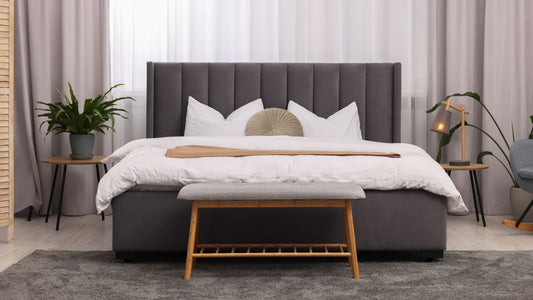In today's fast-paced world, quality sleep has become a luxury for many. According to a 2021 global sleep study, only 55% of adults reported being satisfied with their sleep quality. In Singapore, this figure is even lower at 49%. Shockingly, the average nightly sleep duration among Singaporeans stands at just 6.8 hours, falling well short of the recommended 7-9 hours for adults.
Various factors contribute to this epidemic of sleep troubles, including stress, poor sleep environments, and excessive screen time before bed. In the hustle and bustle of modern life, sleep often takes a backseat, leading to detrimental effects on both physical and mental health.
Importance of Good Sleep

Sleep is an essential activity that allows the body and mind to restore, repair, and recharge. During sleep cycles, metabolic toxins in your brain are removed. When you have good sleep, you will feel rejuvenated in the morning, think clearly, improve problem-solving and decision-making, and perform at your best. Sleep also helps memory retention and the learning process. When sleep-deprived, attention lapses, diminished cognitive abilities, delayed reactions, and mood shifts can occur. Severe lack of sleep may even result in serious implications such as memory lapses, poor body coordination, impaired speech and sight, and even delusions and hallucinations. Furthermore, chronic lack of sleep has been linked to a higher risk for certain diseases and medical conditions, including obesity, type 2 diabetes, hypertension, high blood pressure, and heart disease.
Tips for a Good Night’s Sleep
Everyone may have their personal preferences and requirements for sleep. Here are some easy and simple tips you can try to help you get good sleep:
1. Creating a Good Sleep Environment
A poor sleep environment is commonly cited as one of the top reasons for not getting good quality sleep. Your bedroom should be a calm and relaxing environment conducive to sleep, free from distractions.
-
Declutter Your Bedroom: Your bedroom should be reserved for sleep and sexual intimacy. Keep it tidy and remove potential distractions.
-
Light Exposure: Use heavy curtains or eye masks to block out light and maintain soft lighting in the bedroom.
-
Noise: Keep your bedroom as quiet as possible. Some people find white noise helpful for creating a peaceful environment.
2. Invest in a Good Mattress
A good mattress provides comfort and support tailored to your preferences and requirements. Good Knight® natural latex mattresses are customizable to suit your needs.
3. Sleep at Regular Times
Maintain a consistent sleep schedule, even on weekends, to synchronize your body clock and improve sleep quality.
Blue light from electronic devices can affect sleep quality and disrupt circadian rhythms. Avoid electronic devices at least an hour before bedtime.

5. Avoid Caffeine and Stimulants before Bedtime
Caffeine and stimulants can interfere with sleep. Avoid them, especially in the afternoon and evening.
Alcohol may disrupt sleep patterns and cause dehydration. Avoid large amounts before bedtime.
Regular exercise reduces stress and anxiety, promotes deep sleep, and boosts the immune system.
Reference:
- Philips World Sleep Day 2021 Report



